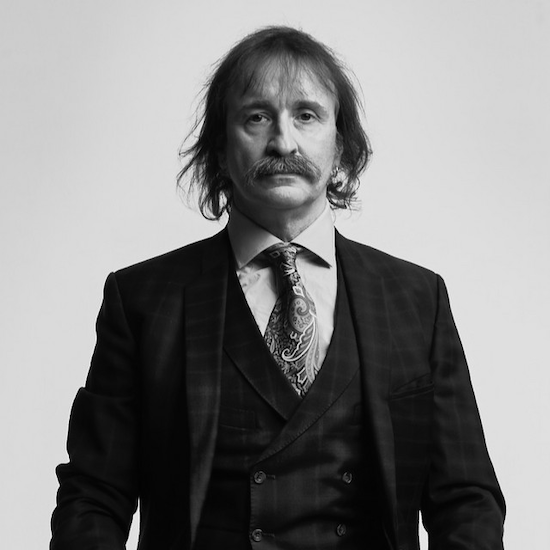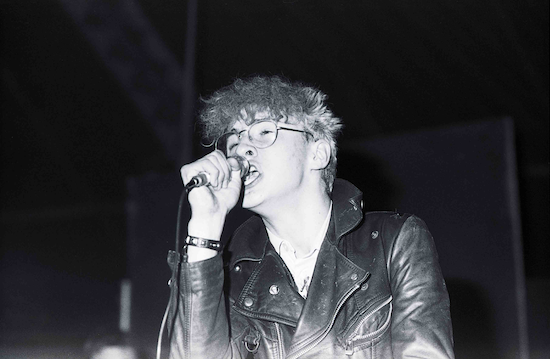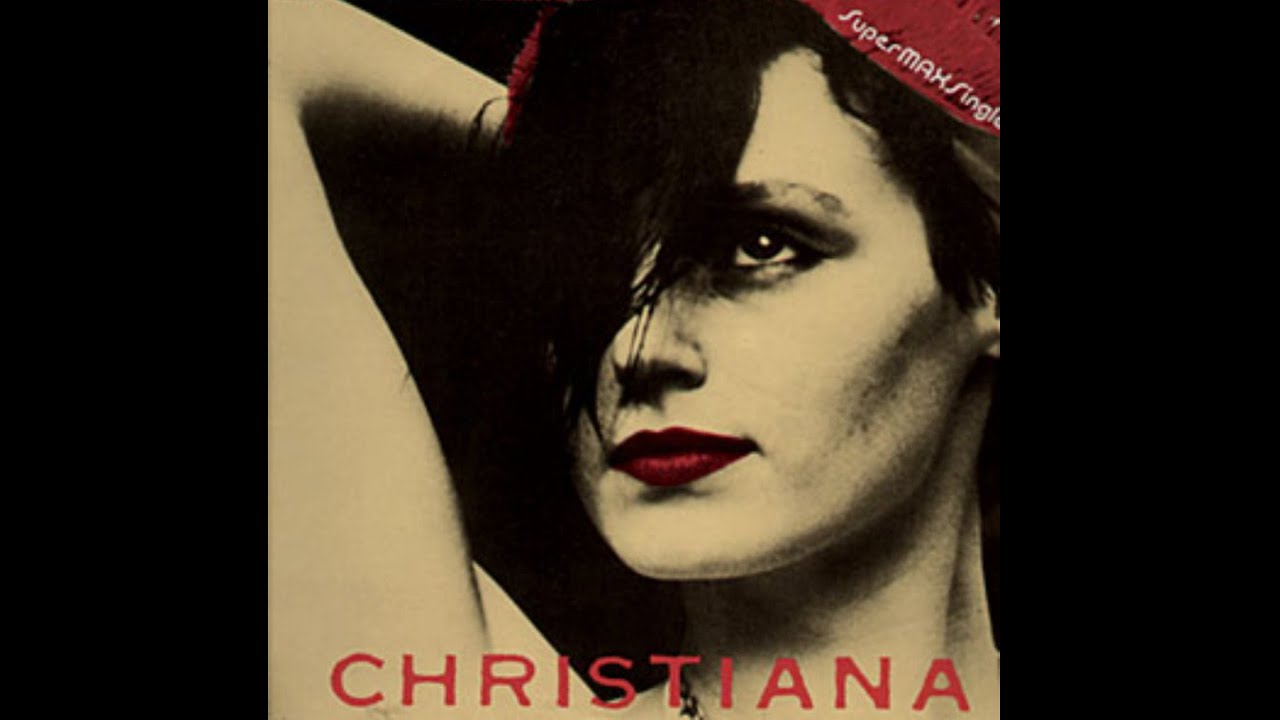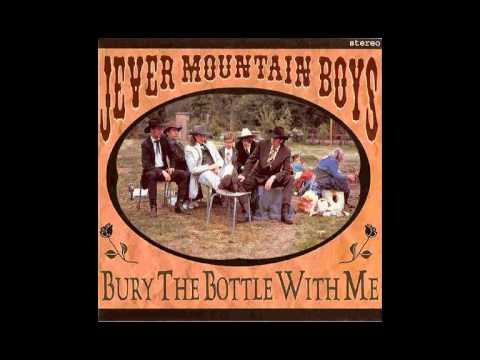In the late 1970s, a teenage Alexander Hacke went by the aristocratic sounding Alexander Von Borsig. His father was a mechanical engineer for the Borsig company, and Hacke would receive a wad of stickers from him when he came to visit, which he would in turn reappropriate like a pubescent Marcel Duchamp.
“Alexander Von Borsig was a teenage boy in the southern suburbs of Berlin who created music with a synthesiser and a rhythm machine on tape recorders at his mom’s apartment,” says Alexander Hacke speaking in the third person, when I ask him to tell me about his teenage alter ego. The young Hacke was cutting-up, looping and sampling fragments of sound, employing methods in his work that were relatively new in the great scheme of things: “I thought I invented Dada and musique concrète,” he declares with a hearty laugh. “But then later, I was informed by my older friends and colleagues: ‘Sorry, these things already exist.’”
Hacke was interested from an early age in cult movies and horror soundtracks, as being able to stay up late is usually one of the advantages of being in a single parent family. He stealthily acquired an arsenal of instruments, inheriting a drum kit from his great grandfather (“He was a professional musician who survived both world wars as a drummer”), then he got his first electric guitar as a present from his mother, who felt sorry for him when he had to have most of his milk teeth yanked out at the ripe old age of 13. Then came a Korg MS-20 for Christmas in 1978 and a Roland CR-78 rhythm machine soon after.
His technical savoir faire became the stuff of legend locally, and he was keenly sought out by independent labels such as Monogam, who put out the now impossible to find Monogam Sampler from 1980, his first collaboration with Einstürzende Neubauten. A young Hacke first met Blixa Bargeld and his coterie in late 1979 when he got involved in organising an anti-fascist festival in Berlin, which the Geniale Dilletanten scene emerged from: “You had the bohemians of Schöneberg and Blixa and a bunch of people from the Kreuzberg squatter scene, which was more punk rock.”
From making music down in the Kassetten Kombinat Studion basement, where he came into contact with his first four-track recorder, Alexander Hacke’s career has always been left field and intriguing outside of his day job as bassist in Neubauten. He’s scored a number of lauded motion pictures, collaborated with everyone from Crime and the City Solution to David Yow from the Jesus Lizard, put out a German country album in the mid-90s and, as a teenage runaway in the early eighties, recorded with his first girlfriend, Christiane Vera Felscherinow, notorious author of the autobiographical Wir Kinder vom Bahnhof Zoo (and the biopic that followed, Christiane F.). Hacke is a keen collaborator who is always open to try different things, usually recorded whilst on the move with mobile recording equipment away from the sterility of the wall-carpeted studio.

In the 21st century, his enduring lead collaborator is his wife, the American artist Danielle de Picciotto. Hackedepicciotto have made four albums together so far, usually recorded in exotic or unexpected places: the Mojave Desert, a mediaeval church in Austria and an Airbnb in Blackpool, although last year’s The Silver Threshold on Mute Records was, for the first time, made in one of those conventional recording studios that he normally despises.
“We felt very motivated before The Silver Threshold and then we were basically blown away by the pandemic.” Hackedepicciotto were forced to stay in Berlin. “It’s actually the first release that we didn’t record using portable equipment, but we embraced the luxury of the situation and booked a proper recording studio with Victor Van Vugt to engineer it – and for me it was so great to to be able to be just an artist and a musician with Danielle, and create music and let somebody else worry about where to place the microphones.” The Silver Threshold itself refers to the liminal period we find ourselves in where great political ructions and seismic world events may yet give way to the next phase in our existence.
“After those years of Brexit and Trump, the pandemic and now of course the war in Ukraine, it feels as though we are standing on this threshold in time – a time of great change. Our perception of nature is changing and the way people are starting to look at the environment. We are on the threshold of a very different world, though it may not be the one we’d hoped for.”
BORSIG WERKE – S.J. (1981)
Alexander Hacke: For that original Borsig Werke tape, I made friends with a guy named Kiddy Citny who later on became famous for his paintings on the Berlin Wall, and he had a band called Sprung Aus Den Wolken which I was also part of. He ran a label with a couple of other guys called Das Cassetten Combinat, which was based under a shop in Schöneberg – a basement that was a studio with rehearsal space. And that was where I met my first four-track cassette recorder! Up to that point I had recorded everything on two tape decks at my mom’s house.
It was released and distributed by them, but then again, we would make our own copies. Cassettes were like a currency. I financed my first trips to London, carrying a box of cassettes that I took to Rough Trade. Someone there would sit with headphones on and listen to the cassettes that I had brought over, and then he’d just buy them off me. I would have enough pocket money to spend for a week or two in London.
Didn’t you sell them in Eisengrau, the clothes shop run by Beate Bartel and Gudrun Gut?
AH: Yeah, it was like an art space with an old pinball machine, and we would have breakfast in the shop window and then just stick the crusts from the sandwiches behind the pane of glass and let them rot. You could see the nice fungus formation and all kinds of other crazy stuff. We had a lot of fun.
I heard you could get some good communist speed there, smuggled in from across the Wall?
AH: I don’t know if it was communist speed. A lot of it came from Holland. It smelled and tasted like cleaning detergent. We used to call it the Ajax speed.
Christiana – Final Church (1982)
AH: Christiana was my first girlfriend who I met after a Neubauten show in 1980 at the Markthalle in Hamburg; not long after, I moved to Hamburg. The Christiane F. movie had just come out – the biopic that was based on the book. When it was opening in Los Angeles, she was invited to go over for the premiere, and some Californian musicians approached her to record music with them. ‘Wunderbar’ was the first single, and she wasn’t very happy with it, but then she knew all these freaks back in Germany, like myself. And we said, ‘Okay, let’s give this a proper makeover instead of this goody-goody, plastic new wave Californian stuff’, which we did. That’s what then became the Final Church 12” which was released on Supermax; as was my Hiroshima single and then also a 12” with Mona Mur, all recorded with F.M. Einheit.
Wir Kinder vom Bahnhof Zoo came out in 1978 just after the German Autumn, so parents worried their children would become terrorists were suddenly worried they’d become drug addicts?
AH: Yeah, that was that time and age. Terrorism was big at the time, that’s correct. I don’t know, it was puppy love. And of course, she was considerably wealthy, unlike everyone else at the time, and I think that was an upside in the relationship [laughs]. That time didn’t provide me with any insights though. It didn’t really support my development. I was a teenager and I moved to Hamburg.
Did you miss Berlin?
AH: Not really. The thing is I was so little. I left school illegally when I was 15 when I moved to Hamburg. I wasn’t supposed to leave school and I just cleared out my locker and decided, ‘Okay, I’m a musician now and I’ll move away from my parents.’ Officially they were not supposed to know where I was, because they would get into trouble. So, officially, I was a runaway. I had to be very careful in Hamburg not to get caught taking the subway without a ticket because then they would’ve had to put me in the hole.
Jever Mountain Boys – Bury The Bottle With Me (1994)
AH: This was a country or Americana roots music covers band that I used to front, which came about when I was recording with Crime and the City Solution. I borrowed this beautiful acoustic guitar from Mick Harvey which he had brought over from Australia. At the time I was playing with open tunings with a slide, and I’d kind of deliberately forgotten all I knew about guitar playing. One day I was sitting by the river that divides East and West Berlin in Kreuzberg after a night in the studio playing my guitar. This homeless guy sat down on the park bench next to me and told me he was in the prison across the river. And he asked me if I could play a Johnny Cash tune for him because his cellmate would play these beautiful Johnny Cash songs, and I had to pass. Of course, I knew all the Johnny Cash tunes by heart, but I’d never attempted to play them myself. It really bothered me that I couldn’t oblige his wish. And I started to question myself as a musician: ‘Am I able to do this?’
So I started to teach myself. I would basically sit in the kitchen and sing and play Ramones or ‘Ace Of Spades’ by Motörhead. Then I invited friends to come over and join me in the kitchen to play these songs and we would drink a lot of beer. We’d have a mountain of either full or empty six packs. And the brand that we preferred back then was called Jever. It’s actually from the north of Germany, from a very flat area by the North Sea. It started out as a hobby band, but then other friends started to get involved like Jochen Arbeit or Roland Wolf, the keyboard player for the Bad Seeds. It was something that we did for fun, but then we became quite popular pretty soon around town and people would invite us to play at their parties. We would get paid in alcohol and it was basically an excuse to get hammered.
You did a bluegrass ‘Ace Of Spades’ about a decade before Hayseed Dixie. Where you annoyed that they stole your idea?
AH: Yeah, I think it was just something that was in the air. Later, The BossHoss from Berlin did exactly the same thing, they’re playing stadiums now.
Alexander Hacke – Sanctuary (2005)
With Sanctuary the idea was to do a road record – like a road movie, where you travel from place to place and there is no fixed script. With a road record, there are no fixed compositions, but you write and you create music as you travel and you incorporate the people that you meet into the story, just like with a road movie. I would just travel and meet friends, mostly musicians all over the world, and record stuff with them. So then you can connect people who wouldn’t normally have ever played together, like Gianna Nannini – the Italian pop singer, and Nils Wohlrabe of the Leather Nun. Ordinarily, I would never have the funds to invite all these people to come to Berlin and record with me.
Tell me about the ‘Sister’ track, which sounds very much like a Dadaist montage of ferocious loops chopped up with a public information recording about fending off a sex attacker?
AH: I was hanging out at night with Don Bolles, who used to be the drummer with the Germs, the American punk band, who is also a DJ with a lot of obscure records in his collection. One of them was a self defence album for women and how to deal with an attacker. It has these repetitions of movements, like: “Kick to the groin” or “Throat shot”. I recorded some of that and then I did sessions in New York with Vinnie Signorelli and Algis Kizys from Swans. And we were doing a session in Vinnie’s mom’s house, and that was back when the technology wasn’t very stable, and we were just too loud for the hard drive to stay stable. So my recordings would drop out, over and over again. So I took these little bits that I had and made loops out of them, because I never managed to actually record more than a couple of minutes. I put these things together and that became ‘Sister’.
Einstürzende Neubauten – ‘Weil Weil Weil (Alexander Hacke "Meanwhile" Remix)’ (2007)
AH: For this release, each band member did a remix or supervised a remix of this track. At the time it was a supporter extra. In the beginning we gave people something that they wouldn’t get elsewhere, a long time before Facebook – even MySpace had only just started at that time. Basically we started the whole crowdfunding thing – it’s basically an Einstürzende Neubauten invention, did you know that? When we started doing that in 2002, there was no such thing as crowdfunding yet. We put out Perpetuum Mobile, Grundstück, and Alles Wieder Offen, created in three consecutive supporter projects, and Patreon and Kickstarter and so on came along after the fact.
And this was part of one of our Musterhaus [German for ‘show home’] series, where we would release stuff that was very experimental, or we’d find cassette recordings with old material and there were all these different versions of songs. And then another idea was all of us to remix ‘Weil Weil Weil’ [because because because]. It was a good track to do that because it has the kind of repetitive structure that you can easily transform into something new. I made mine a bit lower, and deescalated it somewhat. I’ve always been working on film scores, so I tried to turn it into a score for a dystopian movie.
Did you decide on a winner in the end?
AH: No, I don’t think anyone listened to anyone else’s track.
Alexander Hacke – Doomed (2009)
AH: Danielle [de Picciotto] curated an exhibition called Feedback [at the gallery Neurotitan at Haus Schwarzenberg in Berlin] where she invited seven sound artists or musicians to collaborate with seven visual artists. The concept was that the picture came first, and the sound artist or the musician would compose music based on the picture they saw, as opposed to the usual process which is the other way round. And we had lots of different people like Mick Harvey and Laurie Lipton, who is a great artist.
I picked a picture by an artist named Tina Winkhaus called Too Late, a picture representing her daughter lying dead in the woods with her spirit floating above her and that was a huge, high-end print on aluminium; it was very beautiful. I made this very slow, metallic soundscape, which I immediately heard when I first saw the picture.
Alexander Hacke – The Cut (Original Score) (2014)
AH: I first produced the music of a Turkish gypsy band for [director] Fatih Akin’s movie Head On (2004), and then he did a documentary about the Istanbul music scene called Crossing The Bridge (2005) and I was kind of the Ry Cooder in the Buena Vista Social Club; I was the Alexander Hacke in Istanbul for Crossing The Bridge. I introduced all these different musicians and I’m very proud of this. That’s a great documentary and we had a blast making it.
And then he had this project ten years later involving a story of the Armenian Genocide, which is a very touchy theme in Turkey. It’s still not taught in schools, which is terrible. Imagine if the Holocaust wasn’t taught in German schools? With this project I was involved before the first scene was even shot, so I could write music based on the script. Directors often put music they cannot afford into films when they’re editing, and then the composers do mock ups of this music. If you have an ear for it, you can’t imagine how many cheap copies of ‘Sympathy For The Devil’ there are in movies.
The second thing, conceptually, was that it shouldn’t be ethnic music. We decided deliberately that all the music would be based on the electric guitar. I was nominated for the German Film Prize for it, actually. I didn’t get it though.
Did you practise your disappointed face?
AH: Yeah, absolutely. I think it’s ridiculous to smile and be happy about somebody else’s success.
David Eugene Edwards & Alexander Hacke – Risha (2018)
AH: David and I have known each other for a long time. He once asked me to play bass in 16 Horsepower, but the manager that he had at the time was so out of it that he fucked up something to do with his email. So the email sat at the very bottom of my email pile for years because it was dated years ago, from before email was even invented. I kept asking, ‘Why do I have an unread mail? I can’t see it. Where is it?’
Anyway, we both got involved in that reunion of Crime and the City Solution back in 2012. I love the man, and we always had this idea of doing something related to the fact we’ve both always idolised Alan Vega. We love Suicide and we both agreed that we would not be the same people if there hadn’t been for that band. Then Alan Vega died and we had this idea we’d do a record together. And then we did this thing where we just combined his Americana approach with my electronic music and it became this duel, with this kind of Suicide concept. He came to Berlin for almost a month and we recorded it in my studio here.
Hackedepicciotto – The Current (2020)
AH: For this record, we decided we wanted to go somewhere completely different, and we’d only just visited Blackpool. It is this really strange place in Europe. For us it was like Coney Island by the Irish Sea and it has this atmosphere of old world charm. It has a certain energy that you don’t find anywhere else in England, I think, so we went there and booked an Airbnb on top of a fish and chips shop – obviously, because everything is on top of a fish and chip shop in Blackpool. And we assembled the studio there and recorded for a couple of weeks. We noticed 60-year-old people or even older with mohawks; basically old punk rockers who were there for the Rebellion Festival. There are all those decrepit amusement park blinking lights and at the same time you hear the roar of the Irish Sea, which you’re not supposed to go swimming in because there’s a nuclear power plant up the coast. It was very inspiring, and we love Blackpool very much. It’s a very special place.
How did writer and musician John Robb end up on the last track?
AH: He introduced us to Blackpool! He also is from Blackpool, and then he happened to be in town for the Rebellion Festival. We interviewed him basically, we interviewed a bunch of people, for that last track, ‘The Black Pool’. The release of The Current coincided with “Brexit Day” (21 Jan 2020), and that whole thing was still bubbling when we were making it.
Alexander Hacke and Various Artists – Alles ist eins. Außer der 0 (2021)
AH: That means ‘all is one except the zero’. It’s from a documentary about the Chaos Computer Club, which was the first international hacker association, founded by Dr. Wau Holland. The late Dr. Wau, unfortunately. He was a very charismatic and very funny character. It’s a very interesting story; they hacked Teletext, that pre-internet text service you’d get on your television screen when programming had finished. They would hack and transfer money from banks to their accounts, using Teletext. And when the Deutsche Post announced they had a great new security system installed for Teletext, they tried their phone number as the password, and it was. They were crawling around the floor laughing at how easy it was.
It was directed by Klaus Maeck, who was the label boss of the Supermax records back in the day when he first came out in Hamburg, and he was Neubauten’s manager, so it all comes full circle. The soundtrack itself is good too – I did some tracks and Klaus has very good taste. He got this very popular band called Deichkind, they’re on there and they’re just hilarious. They’re very popular with the mainstream and they were really, really cool about giving Klaus the rights to their music because they could have asked for a lot of money. It’s a really cool project and everyone just put a lot of love into it, because the Chaos Computer Club is just iconic, and things like Anonymous wouldn’t exist without them.




